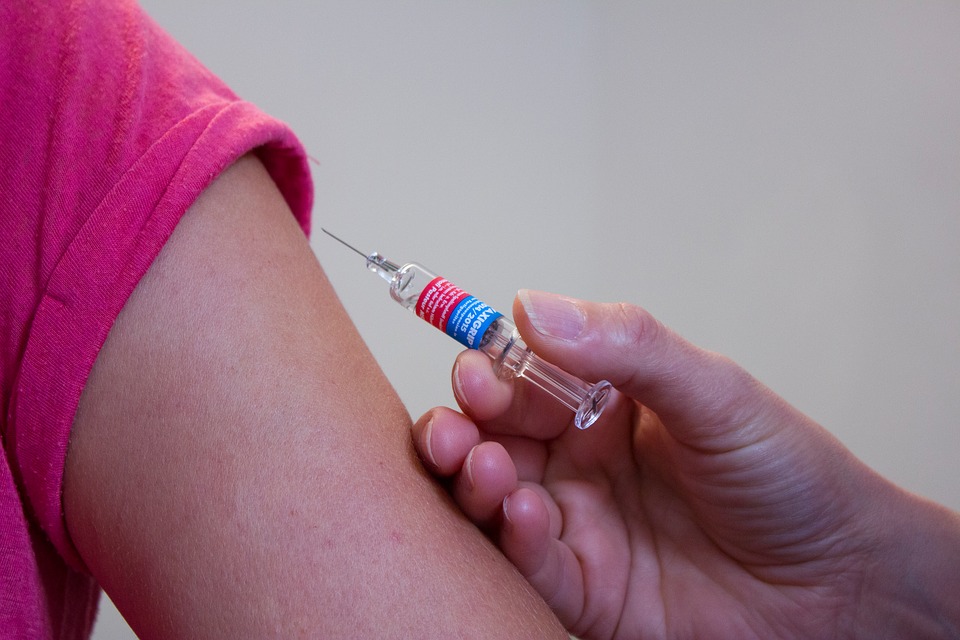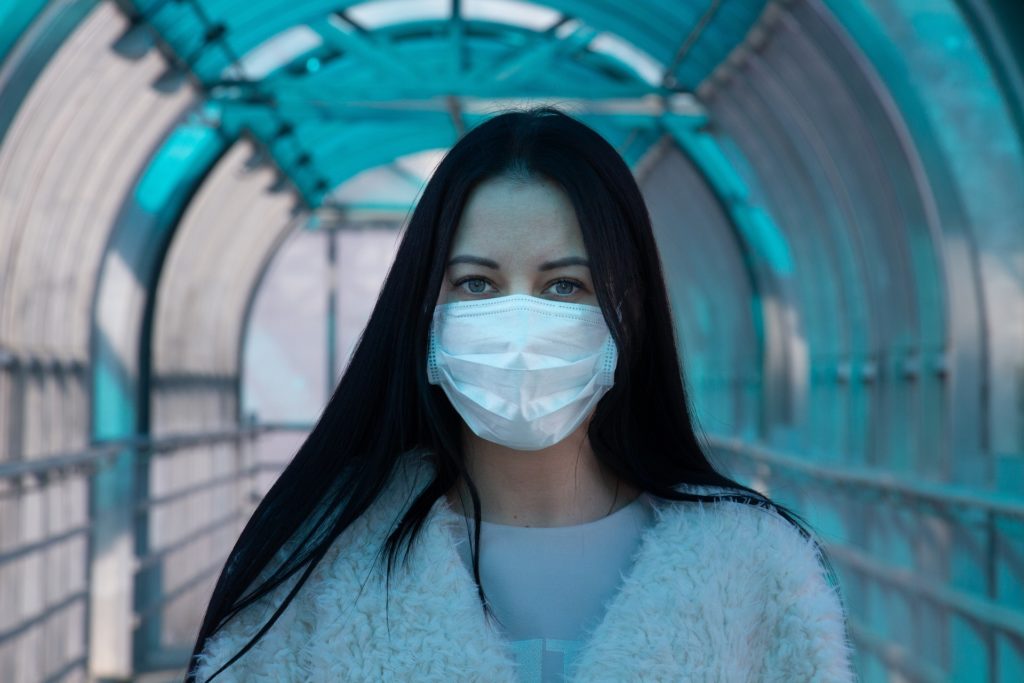
You must know five things about the Epstein-Barr virus (EBV). Why? Because chances are you have it.

Headache, chills, and tiredness may be evidence of a supercharged defence, according to a UCSF-led study.
Fewer than 1 in 4 people in the United States have received last year’s updated COVID-19 vaccine, despite a death toll of more than 23,000 Americans this year.
One of the most common reasons for bypassing the COVID-19 vaccine is concern about side effects like tiredness, muscle and joint pain, chills, headache, fever, nausea and feeling generally unwell. However, a new study led by UC San Francisco found that the symptoms indicate a robust immune response likely to lessen the chances of infection.
The study, which appears online on June 10 in the Annals of Internal Medicine, is based on symptom reports and antibody responses from 363 people who had the Pfizer-BioNTech or Moderna mRNA vaccines when they were first introduced.
After the second dose of the vaccine, the researchers found that those with seven or more symptoms had nearly double the antibody levels of those who did not have symptoms. The participants were mainly in their forties to sixties and had no virus.
About 40% of the study participants also wore a device to monitor their temperature, breathing and heart rate. The researchers found that those whose skin temperature increased by 1 degree Celsius after the second dose had three times the antibody levels six months later than those whose temperature did not increase.
An absence of side effects does not mean the vaccine is not working.
“Generally, we found that the higher the number of side effects, the higher the level of antibodies,” said first author Ethan Dutcher, “But this wasn’t a hard rule: some people without side effects had better antibodies than some people with side effects.”
As the virus has evolved and fatality rates have fallen, many people are underestimating its impact. “The toll of COVID is still high for some – sickness, lost work, lasting fatigue and the dreaded long COVID,” said co-senior author Elissa Epel, PhD, a vice chair in the UCSF Department of Psychiatry and Behavioral Sciences. “While the symptoms from vaccination can be very unpleasant, it’s important to remember that they don’t come close to the disease’s potential complications,” she said.
“With COVID-19 vaccines likely here to stay, identifying what predicts a strong antibody response will remain important,” said co-senior author Aric Prather, PhD, professor in the UCSF Department of Psychiatry and Behavioral Sciences.
The latest Centers for Disease Control and Prevention recommendations are that everyone 6 months and older should receive the updated vaccine, and those 65 and older should receive an additional dose.

–In new research, investigators at Massachusetts General Hospital (MGH) show that the 100-year-old Bacillus Calmette-Guérin (BCG) vaccine, originally developed to prevent tuberculosis, protects individuals with type 1 diabetes from severe COVID-19 disease and other infectious diseases.
Two back-to-back randomized double-blinded placebo-controlled trials found that the BCG vaccine provided continuous protection for nearly the entire COVID-19 pandemic in the US, regardless of the viral variant.
“Individuals with type 1 diabetes are highly susceptible to infectious diseases and had worse outcomes when they were infected with the SARS-CoV-2 virus,” said senior author Denise Faustman, MD, PhD, director of the Immunobiology Laboratory at MGH and an Associate Professor of Medicine at Harvard Medical School. “Published data from other investigators show mRNA COVID-19 vaccines are ineffective in this group of vulnerable patients. But we’ve shown that BCG can protect type 1 diabetics from COVID-19 and other infectious diseases.”
The 18-month Phase III trial, published in iScience, was conducted late in the US pandemic when the highly transmissible Omicron variant was circulating. A 15-month Phase II trial was conducted early in the pandemic; the results of that trial were published in Cell Reports Medicine.
During the COVID-19 pandemic, several international trials tested whether BCG, given as a single shot or booster to previously BCG-vaccinated adults, protected them from infection and COVID-19. This research expanded the large global clinical trial database, showing that BCG administered to newborns is a platform for all infectious diseases, maybe for decades. However, results from these COVID-19 booster trials in people previously vaccinated with BCG were mixed, with five randomized trials showing efficacy and seven trials showing no benefit.
The MGH Phase II and Phase III clinical trials testing BCG differed from other BCG trials in important ways. Instead of receiving one dose of BCG, participants received five or six doses of a particularly potent strain of BCG vaccine. The US participants were followed for a total of 36 months instead of weeks or months. “We know that in people who are naïve to BCG vaccine, the off-target effects can take at least two years to achieve full protection,” said Faustman. “Giving multiple doses of the vaccine may speed up that process.”
And importantly, the US population had never received BCG vaccines, so these clinical trials were not booster trials. “The Phase II and Phase III trials conducted at MGH were unique in that they were the only COVID trials in the world in which the study population had never received a BCG vaccine and was never exposed to TB,” said Faustman. “Trials conducted in countries where participants had previously received BCG vaccine as newborns or who had previous exposure to tuberculosis may have obscured any benefit from a BCG booster.”
The MGH trials enrolled 141 participants with type 1 diabetes; 93 people in the treatment group received five or six doses of BCG vaccine, and the 48 individuals in the placebo group received sham vaccine and were followed for 36 months to capture diverse COVID-19 genetic variants and many infectious disease exposures.
During the earlier Phase II trial (January 2020 to April 2021), when the virus was more lethal but less transmissible, the BCG vaccine’s efficacy was 92%, comparable to the efficacy of the Pfizer and Moderna COVID-19 vaccines in healthy adults.
Over the full 34 months of the US COVID-19 pandemic, the BCG vaccine had a significant efficacy of 54.3%. The investigators also found that the BCG-treated participants had lower rates of viral, bacterial, and fungal infections as well as COVID-19 disease itself.
The BCG vaccine confers an immunity that likely lasts decades, a clear advantage to the COVID-19 vaccine and vaccines against other infectious diseases, such as influenza, where the duration of effectiveness is only two or three months. “The BCG vaccine offers the prospect of near-lifelong protection against every variant of COVID-19, the flu, respiratory syncytial virus, and other infectious diseases,” said Faustman.
Some of the BCG-treated participants also received the commercially available COVID-19 vaccines during the Phase III trial. The investigators observed that the Pfizer, Moderna, and Johnson & Johnson vaccines did not protect people with type 1 diabetes against COVID-19. “Our study showed that the BCG vaccine neither increased the efficacy of the COVID-19 vaccine, nor was it harmful to those who received the COVID-19 vaccine,” said Faustman. “As the pandemic continues to evolve, it will be interesting to see if we can work with the FDA to allow access to BCG vaccine for type 1 diabetics, who appear to be particularly at risk for all infectious diseases.”

Nuria Pastor-Soler, MD, PhD, is the principal investigator of the long COVID clinical trial and an associate professor of medicine at the Keck School of Medicine of USC. CREDIT Ricardo Carrasco III
Approximately 7% of Americans have had long COVID, a range of ongoing health problems experienced after infection and recovery from COVID-19. Symptoms can include fatigue, brain fog, headaches, chest pain, heart palpitations and more.
To date, there is no proven treatment for the syndrome, and the mechanisms that cause it are not fully understood.
Now, a new clinical trial from Keck Medicine of USC is investigating if a diet designed to lower inflammation may play a role in easing this often debilitating condition.
The premise of the trial revolves around recent research indicating that long COVID may be caused by a hyper inflammatory response that becomes activated during COVID-19 as the body fights off the virus but, in some people, does not recede even after the infection has passed. High inflammation levels in the body can lead to organ damage and other health problems.
“We are examining if food choice can quiet the body’s inflammatory response and in doing so, effectively minimize or curtail long COVID symptoms,” said Adupa Rao, MD, an investigator of the clinical trial and medical director of the Keck Medicine Covid Recovery Clinic.
The study will examine the anti-inflammatory effect of a low-carbohydrate diet to lower blood glucose (sugar) levels in combination with a medical food that raises blood ketone levels. Ketones, including beta-hydroxybutyrate, the active ketone in this food, are chemicals the body produces to provide energy when the body is low on carbohydrates and sugars. A low-carb diet and ketones have both been associated with reduced inflammation in the body.
Researchers plan to enroll 50 long COVID patients being treated by Keck Medicine’s Covid Recovery Clinic. Half the individuals will receive a 30-day dietary intervention and half will not. At the end of the month, researchers will determine how patients tolerated the regimen as well as compare inflammatory markers and long COVID symptoms between the two groups of patients.
If the nutritional intervention is tolerated well by patients and improves their health issues, researchers plan to expand the clinical trial to a larger population.
“Research like ours is vital to expand our understanding of long COVID and ultimately help identify effective treatments to improve patients’ quality of life,” said principal investigator of the clinical trial, Nuria Pastor-Soler, MD, PhD, who is also an associate professor of medicine at the Keck School of Medicine of USC. “The results of this trial will hopefully move us closer to potential solutions.”